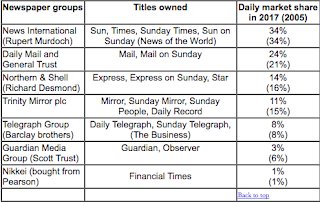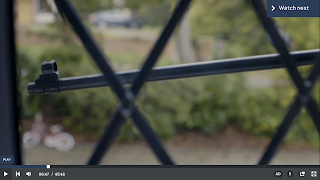Practice Question
"It is essential for a TV programme to simultaneously target both mass and specialised audiences"
Explore this statement with reference to Les Revenants
In the modern world, TV isn't just about sitting down in front of the screen, picking a channel and watching a show whenever it is scheduled. Due to streaming services and the internet, people are now much more able to pick and choose what they would like to watch and when they want to watch it. This makes it more essential than ever for TV shows to target such a large audience as they need to stand out from a much more diverse range than previously.
What is interesting about 'Les Revenants' is the outstanding genre hybridity it uses to create something that appeals to so many. The show is clearly a drama series, as from the start we see a Camille, a panicked young girl, walking the streets alone. As the camera angles cut between close up and tracking shots, the hermeneutic code creates quite a dramatic atmosphere, as the audience will want to know where Camille is going, why she looks so panicked and why she is out late in the evening. As well as this key scene, there are also other dramatic shots such as the bus crash and the suicide of mr Costa.
Another aspect of the show is the horror and supernatural side, which you could say is the dominant reading of the show, as it is based from ghosts and also frequently uses generic conventions of the horror genre. For example, we see a young boy (Victor) following Julie from a bus stop. This convention of a young child 'haunting' people can be seen in many films such as Insidious and the silent twins in The Shining. Victor's character archetype is much like these, in that he is young, pale and acts in a strange way. This displays the producer's ideology of 'The Returned' people as he is the most stereotypical of them all. What subverts this, however, is Julie's unconventional reaction to Victor when she finally notices him. Although close up shots are used on Victor's face and eyes which may make the audience uncomfortable, Julie seems calm and even invites him into her own home. Her lack of fear is interesting, and by breaking convention it creates something which is much more individual to other programmes.
Using Stuart Hall's reception theory, we can gauge that this show isn't designed to have a preffered reading. Sure, a dominant ideology is displayed as we can clearly tell that the show is based on a mystery of the returned people, however the way that this mystery is portrayed doesn't fit into one genre. This means it is highly polysemic, and the frequent use of hermeneutic codes means that the audience doesn't know much and therefore must make up their own minds as the series progresses.
However, it is not only the genre of this show that makes it interesting and appeal to wider audiences. A more specialised audience that it may target is the band 'Mogwai', who produced and wrote the soundtrack used within 'Les Revenants'. What is interesting about them is that they aren't French like the show, but they are from Glasgow, and the music they create is quite niche - it is wholly instrumental, unlike most music. This makes their fans a specialised audience, and enables the show to target another audience which they may not have if the music hadn't been used, as well as giving it international appeal outside of France. It is also another item which fans of the show may use in order to create more of an immersive experience and connect with it better, and therefore by using vertical integration the producers have enabled themselves to have a much wider audience.
Overall, TV shows nowadays need to simultaneously target both mass audiences and specialised audiences as they have a lot more competition now that channels didn't face ten or twenty years ago as streaming didn't exist. By using several genres, they are able to target multiple audiences, as well as using 'Mogwai' in order to create more international appeal.


Comments
Post a Comment